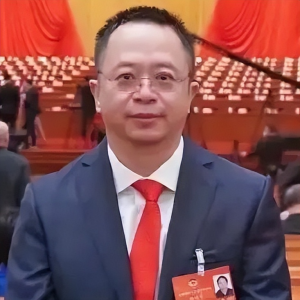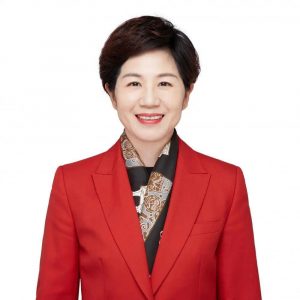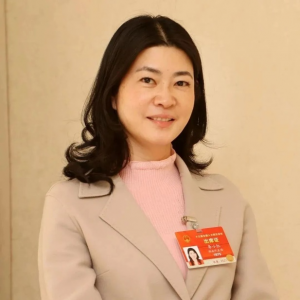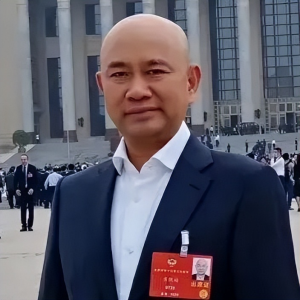
China’s Two Sessions 2023, held from March 4 to March 10, saw active participation from several CKGSB alumni who either served as committee members or representatives, providing valuable insights on a wide range of topics. As an important annual event, the Two Sessions bring together China’s top legislative body, the National People’s Congress (NPC), and the Chinese People’s Political Consultative Conference (CPPCC), China’s top advisory body, to discuss and ratify government policies, legislation, and budgets. In this article, we highlight a few proposals our alumni made at the Two Sessions covering various topics.
Technology and Digitalization
Zhou Hongyi
Founder, Chairman and CEO of 360 Group and CKGSB Alumnus

Zhou proposed two approaches for China to develop its own large-scale AI models from two approaches. First, China’s tech giants and academic institutions should collaborate on tech innovation, following the example of “Microsoft and Open AI”. Second, China should encourage and support the establishment of multiple national open-source large-scale AI models, thereby creating an ecosystem of tech innovation.
Wang Zhaoming
Founder of M-Grass Ecology and Environment Group and CKGSB EMBA Alumnus

Wang proposed that China’s authorities need to accelerate the development of a technology platform in the sector of grassland management in order to increase the large-scale and standardization breeding of high-quality seeds, effective monitoring of soil conditions, and enhanced forage production. He emphasized that applying digital technology to grassland and pasture management is crucial for improving productivity and sustainability.
ESG and Sustainable Development
Tu Hongyan – Chairperson of Wensli Group and CKGSB EMBA and Business Scholars Program Alumna

Tu called for the textile industry to embrace green and sustainable development. She suggested implementing a closed-loop manufacturing process to ensure waste is collected and recycled, as well as recommending tax deductions for companies that invest in green and low-carbon growth. She also suggested setting up a national committee to align standards on energy consumption in the textile industry as well as low-carbon certifications and standards for textile products.
Feng Yidong – General Manager of Zhongtai Securities Co., Ltd. and CKGSB EMBA Alumnus

Feng suggested China’s needs to optimize its carbon markets. He emphasized the need for improving the allocation system of carbon emission quotas, suggesting that the Ministry of Ecology and Environment and the National Development and Reform Commission should jointly determine carbon emission allowances nation-wide based on the characteristics of each industry. He also recommended that companies possessing carbon quotas should be subject to an emissions tax.
Drawing from the lessons of the European Union Emissions trading system (EU ETS), he emphasized the importance of avoiding an oversupply of carbon allowances. He further suggested that the China Securities Regulatory Commission should be responsible for overseeing and managing China’s unified carbon trading market.
Income and Consumption
Xu Qingliu – President of Hengan International Group and CKGSB Business Scholars Program Alumnus

As a new member of the National Committee of the Chinese People’s Political Consultative Conference, Xu offered various proposals to improve residents’ income, social security, and consumption. He suggested China can improve its Gini coefficient by raising the national minimum wage, the minimum living standard and social security payments. He urged that China needs to reform its social security system immediately, create a fairer and more unified public pension system, expand social security coverage, and reduce taxes on China’s working class. In order to promote mid-to long-term consumption, Xu suggested considering dropping restrictions on house purchases, car purchases, and import tariffs on consumer goods.
Guo Daijun – Chairman of China Chengtou Construction Engineering Group Co., Ltd and CKGSB EMBA and Business Scholars Program Alumnus

Guo focused on the improving the working environment for China’s large migrant population. He urged that China needs to be improve labor conditions for migrant workers, provide more opportunities for education and re-training, set up a standard system of special accounts that ensure migrant workers receive wages, as well as set up schemes to encourage more young people to join the construction industry.
Li Xiaohong – Chairperson of Hunan Jiahui General Merchandise Co. Ltd and CKGSB EMBA alumna

Li highlighted the need to increase the efficiency of the movement of goods from rural areas to cities. She also pointed out that current laws, such as the Product Quality Law and the Food Safety Law, contain vague descriptions of accountability, such as “whoever produces takes responsibility,” which are not sufficient in ensuring safety and quality throughout the distribution and consumption stages of the value chain. She recommends that these laws need to be extended to all stages of the value chain to hold all actors accountable for the safety and quality of agricultural products.
Society and Culture
Liang Jinhui – Chairman of Anhui Gujing Group Co., Ltd. and CKGSB EMBA Alumnus

Liang suggested China should actively promote its rich Baijiu culture on the international stage, and to share “China’s rich traditional culture with the world.” He suggested China should apply to UNESCO for Baiujiu to be considered as an ‘intangible cultural heritage’, which would help raise the international profile of Baijiu and promote understanding and appreciation of this traditional Chinese liquor. He also advocated constructing a standardized system for trading Baijiu internationally.
Xiao Kaixuan – Chairman of Jinma Kaixuan Group and CKGSB CEO Program Alumnus

Xiao emphasized the need for China to build a fertility support system in order to promote long-term sustainable population growth. He stressed that China should not only focus on increasing the birth rate but should also extend its investments towards childcare and education. He alluded to the heavy burden and pressure placed on children and teenagers in recent years, leading to heightened mental health problems. Xiao called on the government to build a comprehensive support system to support young people’s mental health needs.